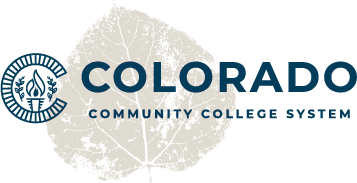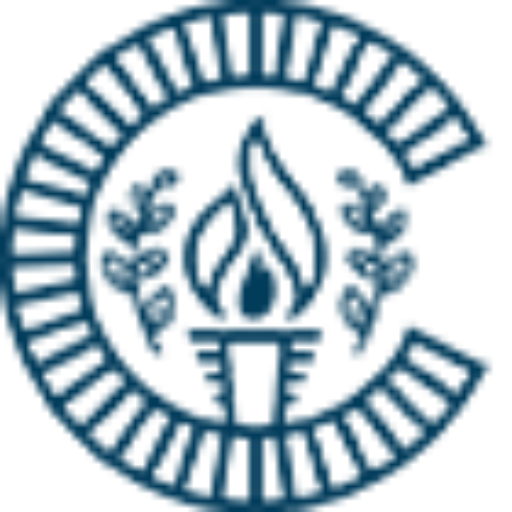State Board | Policies and Procedures
SP 3-125e – General Higher Education Opportunity Act Procedures
COLORADO COMMUNITY COLLEGE SYSTEM
SYSTEM PROCEDURE
General Higher Education Opportunity Act Procedures
SP 3-125e
EFFECTIVE: July 1, 2010
REFERENCE: BP3-125, Electronic Communication Policy
APPROVED:
/ Nancy J. McCallin /
Nancy J. McCallin, Ph.D.
System President
Purpose
In accordance with the Higher Education Opportunity Act of 2008, the Colorado Community College System, hereafter referred to as CCCS, has adopted this Plan to combat unauthorized distribution of copyrighted material through peer-to-peer file sharing.
Technology Based Deterrents
The Colorado Community College System computing infrastructure has the ability to shape the majority of peer-to-peer applications in use today. This same technology can be used to assist with the identification of individuals who may be accessing P2P networks and potentially downloading and uploading copyrighted material. CCCS will use technologies that provide the ability to identify P2P applications and assist with the shaping of the traffic associated with such applications as appropriate to enhance the effectiveness of the Plan and consistent with preserving the computing infrastructure and CCCS resources.
Policies
The Appropriate Use Policy (SP 3-125c) prohibits violations of federal law or any other conduct that unreasonably interferes with the operations of CCCS. These provisions make any copyright infringement by a student, faculty or staff member a violation of State Board policy. In addition, this policy prohibits any use of the CCCS network for unauthorized copying of copyrighted material including, but not limited to, digitization and distribution of photographs from magazines, books, or other copyrighted sources, copyrighted music, movies, and the installation of any copyrighted software for which CCCS or the college does not have an active license. Unauthorized distribution of copyrighted material through peer-to-peer file sharing is explicitly prohibited.
Assessment of Plan Effectiveness
The Technical Director of Infrastructure will coordinate a periodic assessment of the effectiveness of this Plan. The assessment shall consist of a review of current legal alternatives for downloading or otherwise acquiring copyrighted material and a review of CCCS’s current technology based deterrents for unauthorized distribution of copyrighted material.
Peer-to Peer File Sharing Procedure
CCCS’s culture supports sharing knowledge and information in a manner that does not violate copyright law or State Board policy or regulation. File sharing is the practice of using the Internet to make files available for others to download. Peer-to peer (P2P) file sharing applications allow a computer to connect to a P2P network, and once connected, make it possible to download as well as upload files for other users on the network. Campus computer networks are subject to be used to download and distribute copyrighted music, movies, television shows, pictures, games, software, etc. through the use of P2Pfile sharing networks.
While there are files we can legitimately obtain and share, for instance, works of our own creation or works in the public domain, it is against the law and CCCS policy and regulation to download copyrighted materials (such as music, movies, video games, computer software, photographs, etc.) without legal authorization such as purchasing the work or obtaining the copyright holder’s permission. Purchasing a work for your own use does not give you legal authorization to further distribute that work.
P2P file sharing poses risks to the CCCS computer network and to the individuals involved. The Colorado Community College System respects the intellectual property rights of others and expects students, faculty, and staff to do so as well. We also must ensure that the CCCS network is not put at risk or misused.
Risks of Unauthorized Peer-to-Peer File Sharing
Illegal P2P downloading and distribution of copyrighted material, even if inadvertent, holds the risk of significant penalties beyond sanctions for violation of CCCS policy and regulation. Under federal law, a person found to have infringed upon a copyrighted work may be liable for actual damages and lost profits attributable to the infringement, and statutory damages from $200 up to $150,000. The copyright owner also has the right to permanently enjoin an infringer from further infringing activities, and the infringing copies and equipment used in the infringement can be impounded and destroyed. If a copyright owner hired an attorney to enforce his or her rights, the infringer of a work may also be liable for the attorney’s fees as well as court costs. Finally, criminal penalties may also be assessed against the infringer and could include jail time depending upon the nature of the violation.
Along with the potential for CCCS sanctions for violations of State Board policy and regulation and legal complications associated with P2P file sharing, the files downloaded or distributed through P2P file sharing can cause harm to individuals, their computers and the computing network and infrastructure. These risks include but are not limited to virus infections, worm infections, Trojan Horses, Spyware, sensitive information leakage, and identity theft.
Purpose
It is the responsibility of all members of the CCCS community to use copyrighted materials in a manner that complies with the United States Copyright Law and State Board policy and regulation. The purpose of this procedure is to combat unauthorized downloading and distribution of copyrighted materials using P2P file sharing and guard against the associated risks.
Education
The CCCS Colleges annually distribute an educational publication(s) to the campus communities. The publication(s) outline the technology behind peer-to peer file sharing, provides examples of how certain uses of that technology may constitute unauthorized distribution of copyrighted material, and provides information on resources and alternatives for legally obtaining copyrighted material. The publication describes the policies with respect to unauthorized peer-to-peer file sharing and summarizes potential disciplinary actions for violation of the procedure. It also explicitly informs the campus communities that unauthorized distribution of copyrighted material, including unauthorized peer-to-peer file sharing, may result in civil and criminal liabilities and summarizes potential civil and criminal penalties. The information is distributed to the campus communities annually and posted on the College website.
Scope
This procedure applies to CCCS employees, staff, faculty, students, guests, and all other users of the Community College System’s computing and network resources.
Procedure
Uses of P2P applications on the CCCS network in a manner that infringes copyright or interferes with or poses a risk to the network integrity or security are prohibited by this procedure.
Using P2P applications to download a copyrighted work is deemed to infringe copyright protection if undertaken without legal authorization, which may be obtained through purchasing the work or obtaining the owner’s written authorization. Purchasing a work for downloading does not authorize further distribution.
Using P2P applications interferes with or poses a risk to the CCCS network whenever the use places an unusual burden on the network, for instance, when excessive bandwidth is occupied and when potentially unsafe content is downloaded or uploaded. P2P applications may be used for legitimate academic or research purposes or for personal purposes so long as those uses do not violate the law or this procedure.
Enforcement
CCCS does not routinely monitor its computer network to detect infringement of copyright protected materials; however it receives copyright infringement notifications of various kinds from owners of copyright protected material that has allegedly been infringed by CCCS network users.
The Digital Millennium Copyright Act (DMCA) provides copyright owners with a procedure for notifying service providers of alleged infringing activities by their subscribers. CCCS is generally deemed a service provider under the DMCA. A notice of infringing activity must contain the following elements to be sufficient.
- A physical or electronic signature of a person authorized to act on behalf of the owner of an exclusive right that is allegedly infringed.
- Identification of the copyrighted work claimed to have been infringed, or, if multiple copyrighted works at a single online site are covered by a single notification, a representative list of such works at that site.
- Identification of the material that is claimed to be infringing or to be the subject of infringing activity and that is to be removed or access to which is to be disabled, and information reasonably sufficient to permit the service provider to locate the material.
- Information reasonably sufficient to permit the service provider to contact the complaining party, such as an address, telephone number, and, if available, an electronic mail address at which the complaining party may be contacted.
- A statement that the complaining party has a good faith belief that use of the material in the manner complained of is not authorized by the copyright owner, its agent, or the law.
- A statement that the information in the notification is accurate, and under penalty of perjury, that the complaining party is authorized to act on behalf of the owner of an exclusive right that is allegedly infringed.
- If CCCS receives a notice that meets these requirements it will be taken as evidence of a potential violation of this procedure. The copyright owner’s notice will be forwarded to the user at the IP address indicated with an indication of actions required to resolve the complaint.
If a P2P use is interfering with or placing the network at risk, CCCS will send the user a notice of evidence of a potential procedure violation with an indication of actions required to resolve the complaint.
Actions required to resolve a complaint of potential procedure violation may include one of more of the following:
- requiring that the user immediately cease any prohibited activity;
- requiring that the user participate in training on the risks of P2P file sharing;
- other action as deemed appropriate to the circumstances.
Failure of the user to comply with any required actions set out in a notice of potential procedure violation, or alternatively, on receiving a notice of potential procedure violation to provide CCCS with evidence that the use does not violate the law or State Board policy or regulation, may result in the immediate disconnection of the offending device from CCCS’s network or disabling access for the person at the IP address. CCCS may disconnect an offending device or disable access for the person at the IP address without prior notice if the use is interfering with network operation or placing the network at risk until appropriate actions can be taken. Furthermore, violation of this procedure may result in disciplinary action under appropriate State Board disciplinary procedures for employees, faculty, staff, and students. Sanctions may include any sanction available under the appropriate disciplinary policy, up to and including dismissal from CCCS or termination of a user’s CCCS computing account. Civil and criminal legal consequences may also result.
Alternatives
CCCS allows legal downloading on its network so long as the use does not interfere with or pose a risk to the network. Obtain legal downloading resource information at http://www.educause.edu/Resources/Browse/LegalDownloading/33381. These resources may not remain valid over time. It is up to the individual user to check out the legal status of any music downloading service they might wish to use.


